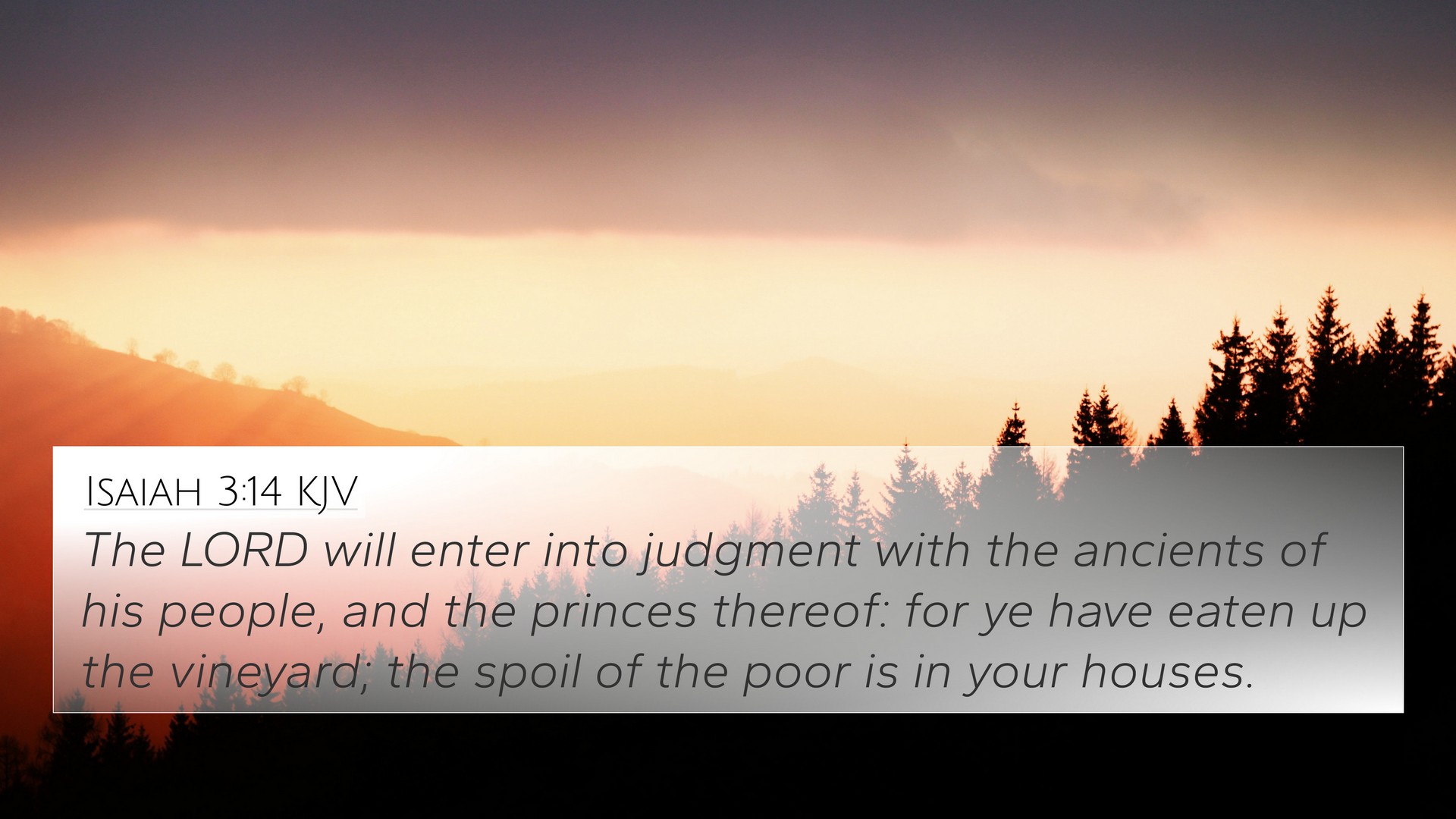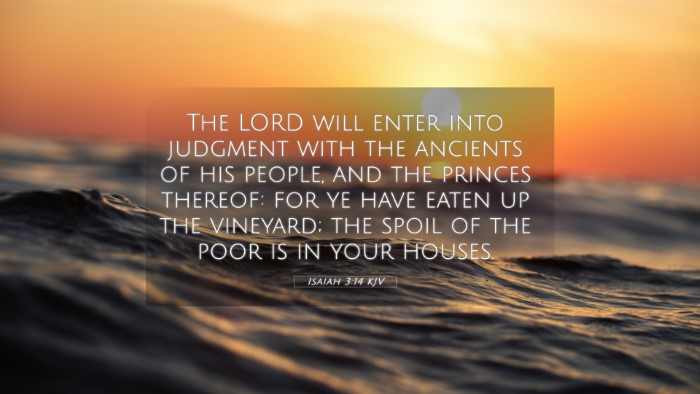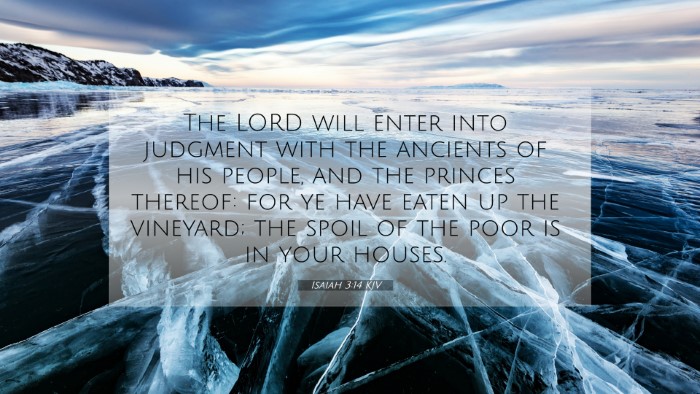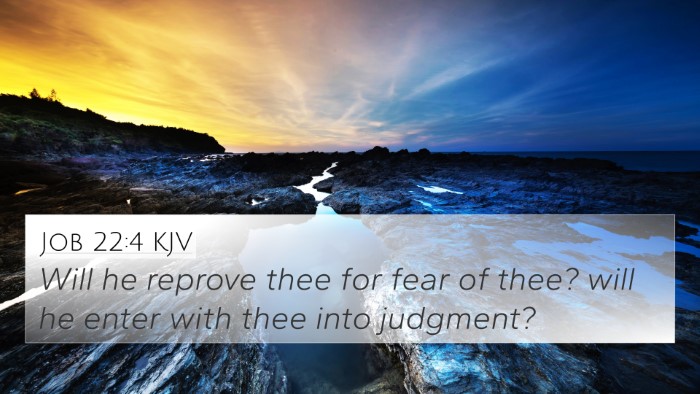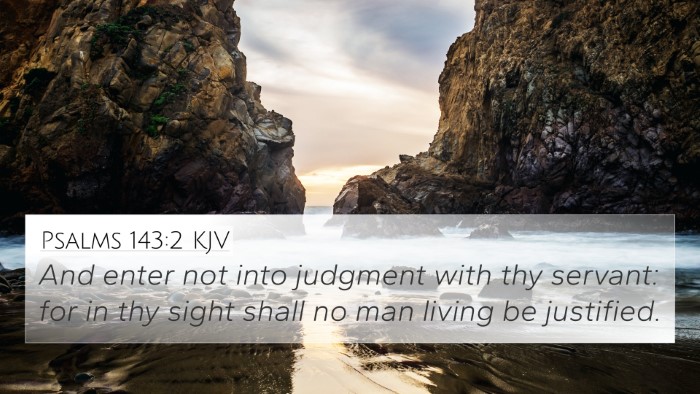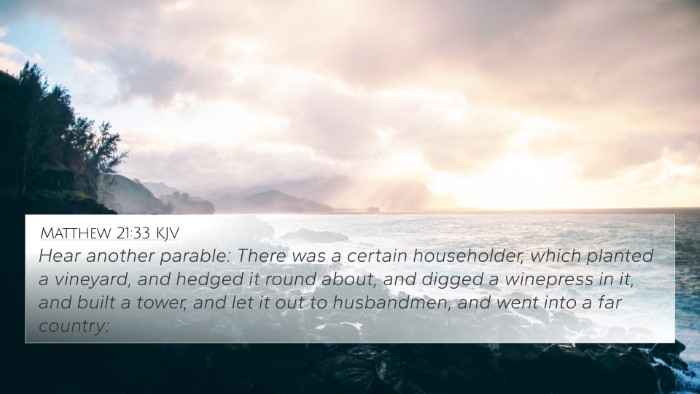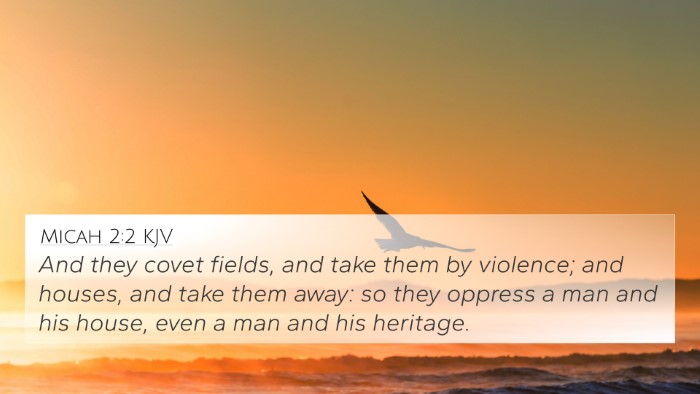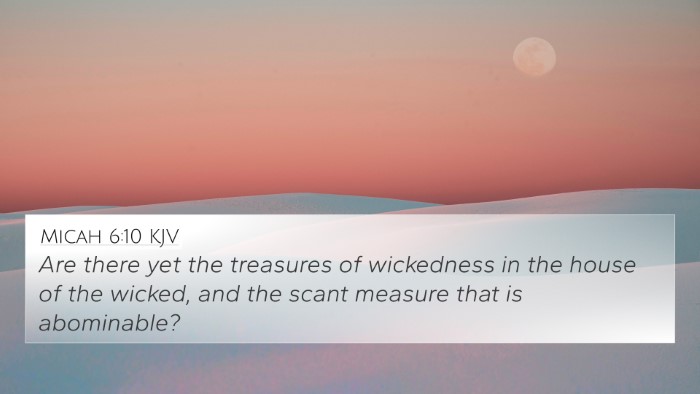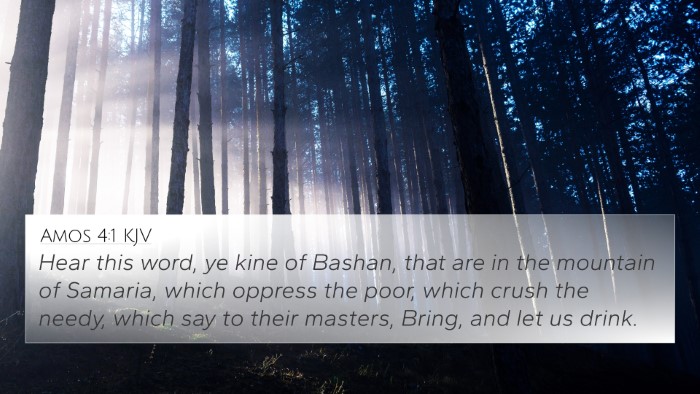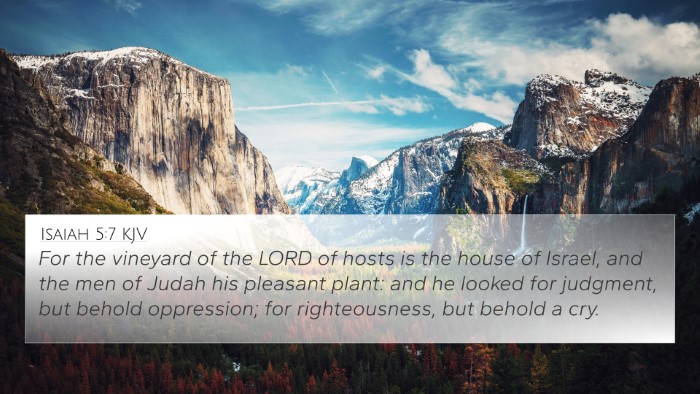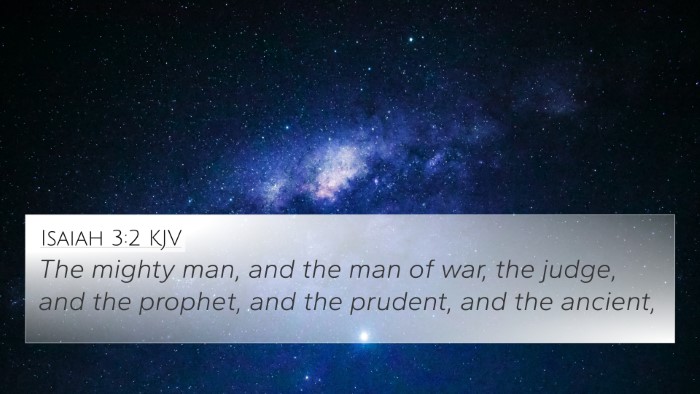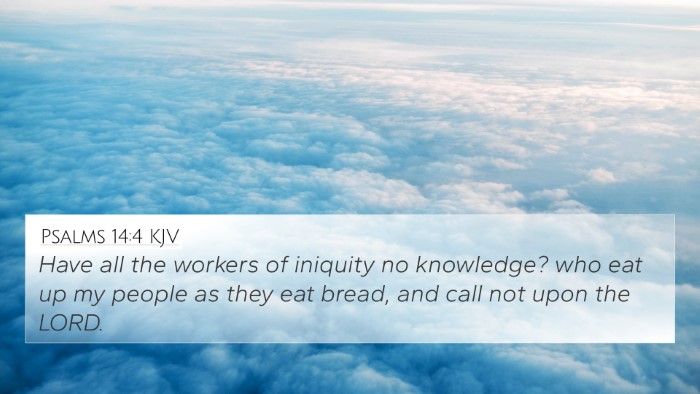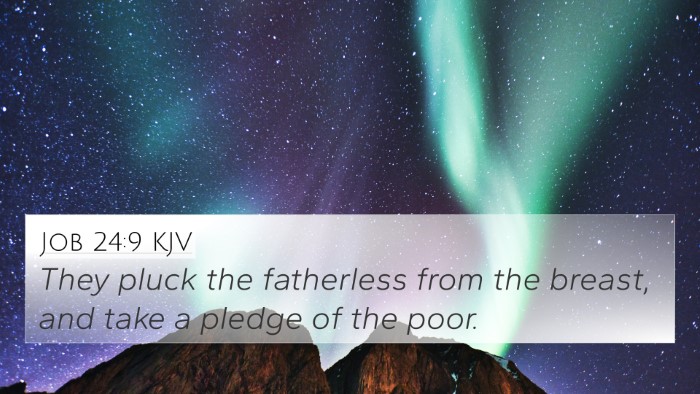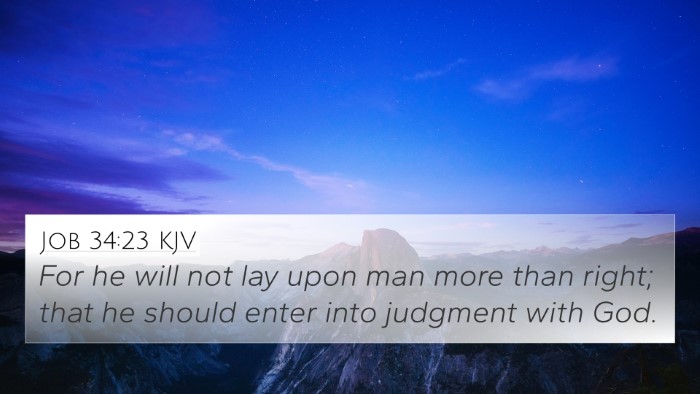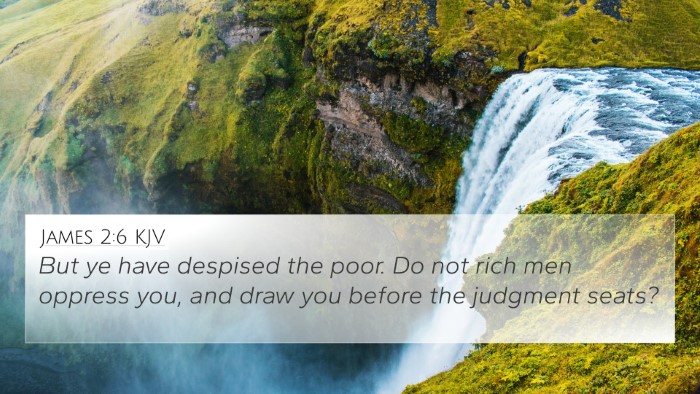Understanding Isaiah 3:14
Isaiah 3:14 states, "The Lord will enter into judgment with the elders of His people and His princes; for you have eaten up the vineyard; the plunder of the poor is in your houses." This powerful verse speaks to the judgment that God will administer against corrupt leaders, emphasizing their responsibility for the injustices committed against the vulnerable in society.
Summary of Insights
The insights from several public domain commentaries reveal a profound understanding of this verse:
- Matthew Henry: Henry emphasizes the accountability of leaders who exploit the poor. He notes that their misuse of power will not go unpunished, as God seeks justice for those who suffer from their oppression.
- Albert Barnes: Barnes highlights the metaphor of the "vineyard," symbolizing the people of Israel. He explains that the leaders have consumed the resources meant for the community, indicating their greed and neglect of duty.
- Adam Clarke: Clarke elaborates on how God's judgment will be directed specifically towards the elders and princes, showing that those in authority are held to a higher standard due to their position and influence.
Key Themes and Connections
This verse invites an examination of several key themes, including:
- Divine Justice: God’s judgment is a central theme, reminding us that He watches over the conduct of leaders.
- Accountability: The leaders’ actions directly impact their standing before God, illustrating the principle that those in power must act justly.
- Social Justice: The plight of the poor and the need for their defense against exploitation is underscored in this verse.
Bible Verse Cross-References
To deepen your understanding of Isaiah 3:14, consider these related verses:
- Micah 6:8: "He has shown you, O man, what is good; And what does the Lord require of you but to do justly, to love mercy, and to walk humbly with your God?"
- Proverbs 31:8-9: "Speak up for those who cannot speak for themselves, for the rights of all who are destitute. Speak up and judge fairly; defend the rights of the poor and needy."
- Isaiah 10:1-2: "Woe to those who enact evil statutes and to those who constantly record unjust decisions..."
- Ezekiel 18:30: "Therefore I will judge you, O house of Israel, each according to his conduct," declares the Lord God.
- James 5:1-4: "Come now, you rich, weep and howl for your miseries that are coming upon you..."
- Psalm 82:2-4: "How long will you judge unjustly, and show partiality to the wicked? Defend the poor and the fatherless; do justice to the afflicted and needy."
- Lamentations 3:34-36: "To crush under one’s feet all the prisoners of the earth, to turn aside the justice due a man before the Most High..."
Comparative Bible Verse Analysis
In engaging in a comparative analysis of these verses, one can draw parallels between the prophetic voices of Isaiah, Micah, and the warnings delivered through the New Testament by James. This inter-Biblical dialogue spotlights the consistent biblical condemnation of injustice and exploitation throughout Scripture.
Tools for Bible Cross-Referencing
To explore the connections between Bible verses effectively, consider the following tools:
- Bible Concordance: A tool to find where specific words appear in the Bible.
- Bible Cross-Reference Guide: Helps in linking related scriptures for deeper study.
- Cross-Reference Bible Study: Engages the reader in examining themes across different texts.
- Comprehensive Bible Cross-Reference Materials: Provides an extensive list of references for thorough scriptural analysis.
How to Use Bible Cross-References
Understanding how to find and utilize cross-references in the Bible enriches your study. Some effective methods include:
- Identifying connections between the Old and New Testament, as seen in themes of justice.
- Utilizing specific cross-referenced themes to prepare sermons or lessons.
- Engaging in a comparative study of the teachings of Jesus and the Prophets to see how God's message carries through history.
Conclusion
Isaiah 3:14 serves as a poignant reminder of God’s focus on justice and righteousness, especially regarding those who lead. Through careful study and cross-referencing of related scriptures, one can gain a richer understanding of the biblical call to social justice and accountability.
